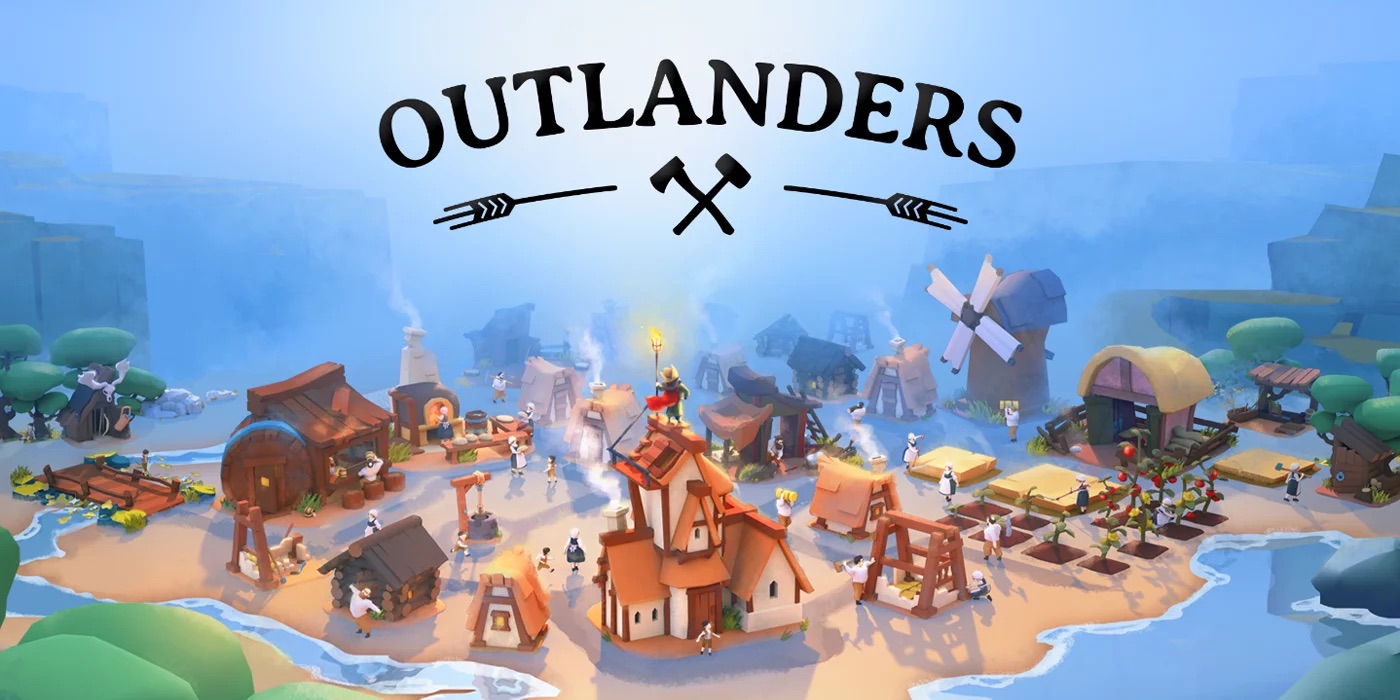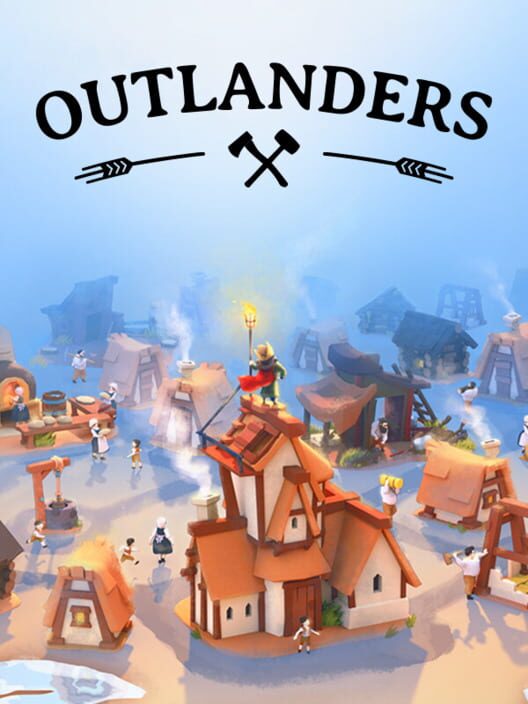While I’ll never proclaim myself to be good at them, I’ve always had a soft spot for city-builders and resource management games. Since my first attempts at Sim City on the SNES, I’ve found it fun to hold a growing civilisation in my hand, though I often get about 75% of the way through and then struggle to keep up with all of the management to push through to the finale. Time to point the spotlight on Outlanders from Pomelo Games then; a boiled down city-builder experience where there’s plenty to do in a small space and only a few folks to keep an eye on.
Outlanders is a city-builder, but on the smallest possible scale. This isn’t the kind of game where you’ll be overseeing sprawling mega-cities, overrun with an enormous populace and burgeoning to keep up with technological advancements. No, instead you’ll be helping a small group of settlers -perhaps between 5-50- start a simple new life for themselves in the islands. Of course, you’ll have all of the standard ‘city-builder’ tasks to undertake – gather materials, keep your folk fed and warm, and generally look after their happiness and wellbeing, but don’t think that it will will be an easy ride just ‘cause you’re only taking care of a few peeps. Outlanders is a tricky affair.
Outlanders has a short campaign that asks you to focus on a small populace and achieve modest objectives, or there’s a sandbox mode for players who want to jump straight in with all the trimmings and enjoy what’s on offer from the get-go. It’s a combat free environment, so you won’t ever have to worry about raiders spoiling your fun or creating defences for your settlements – you can just enjoy the quiet, humble life.
The resources at your disposal are as old as time itself – collect wood, stone and food and use them to build a cosy place to live. In time you can erect buildings that allow you to finesse these basic items into more helpful ones (wood into planks, wheat into flour etc.) which expands your options a little, but the beauty of Outlanders really lies in the simplicity. The gameplay loop is a easy – there aren’t a million things to keep track of, nor a tonne of resources to mine, convert or trade – you just ask your lil’ dudes to cut down a few trees and forage a few mushrooms, and that’ll actually get you a good part of the way to success. There could be some who find this small scope a little unappealing, but I actually found the stripped back mechanics pretty refreshing.
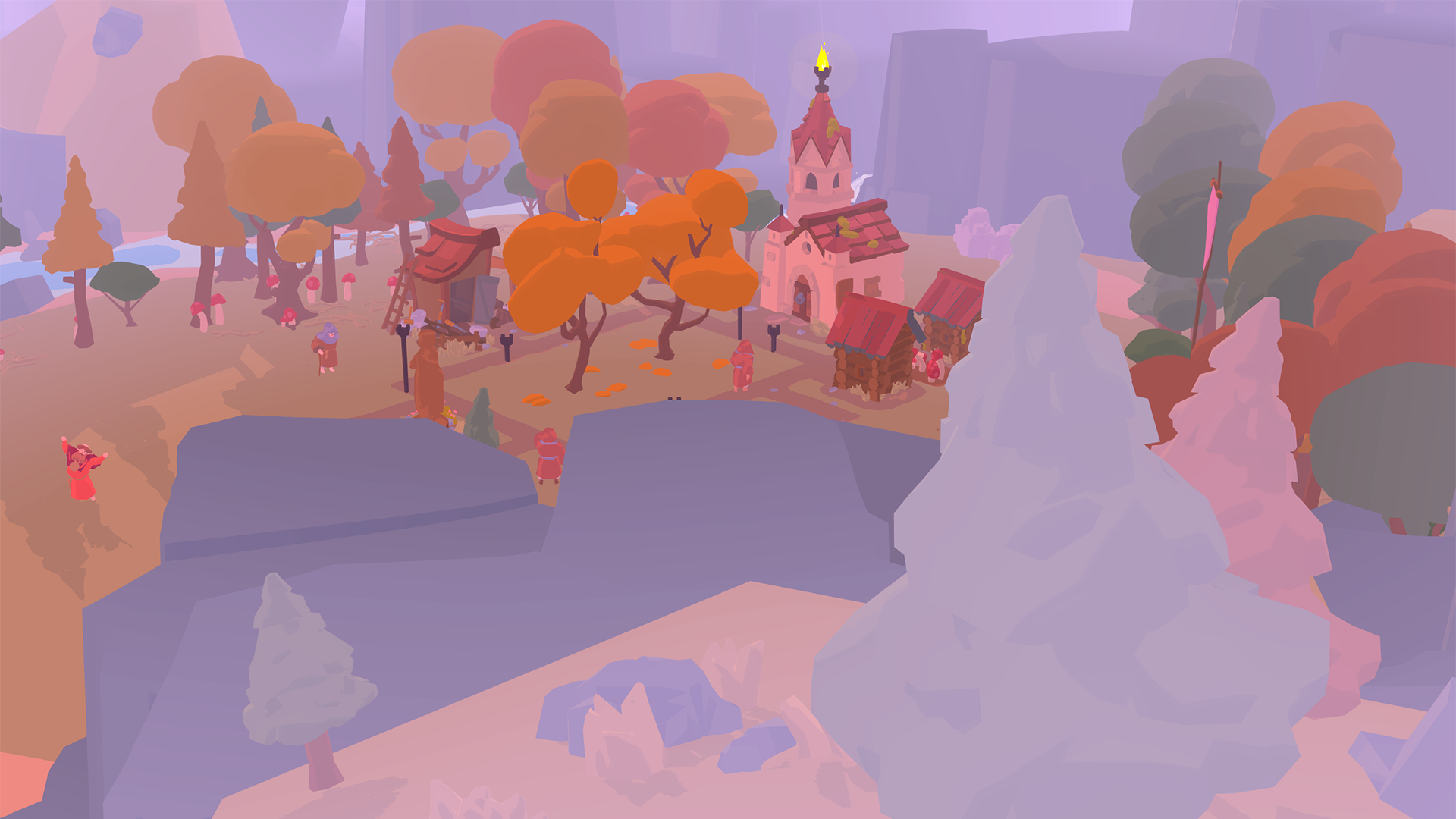
Your townsfolk will have children over time, and they will later grow up to join your workforce, and eventually pass on, meaning that you need to keep an eye on the age of your populace, less you allow your settlement to quite literally die out. Each villager is given a little blurb about themselves which it’s a nice touch for those eager to take in the finer details, but I’ll admit I spent my time micromanaging the activity than I did learning about my townsfolk.
A mechanic that I found both enjoyable and incredibly useful were the Decrees, which allow you to place a mandate down on your townsfolk to behave in a certain way – manipulating their behaviour to suit your current circumstances and needs. For example, if you’re struggling with food provision, you can ask people to ration their intake and cut down on how much they eat per day – sure, they’ll be grumpy at the smaller portion size, but that’s much happier than if they ate your out of house and home and starved to death. An interesting Decree is *cough* “Love Each Other” which, -yep,you guessed it- turns your villagers into rampant little rabbits who struggle to concentrate on getting anything done but the deed, supplying you with a swathe of new babies in town just a little while later. You can also tell them to abstain from doing the horizontal hula should you wish – this will make your followers thoroughly miserable (understandably), but does help you manage your populace and food consumption, so it can sometimes be a necessary evil.
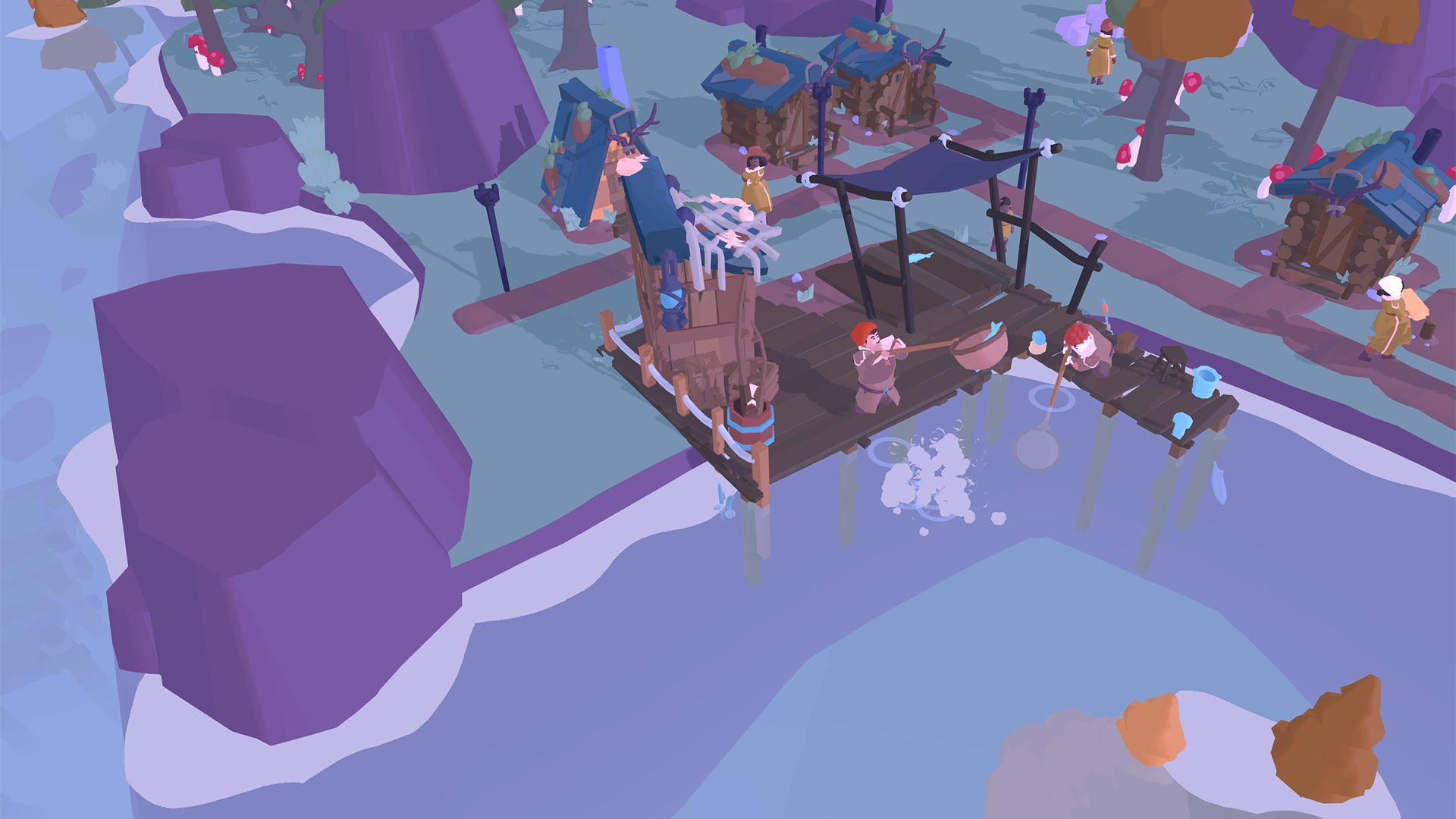
The appeal of the charming low-poly visuals are immediate, and despite a somewhat limited soundtrack, the chill vibes of the banjo do a great job in immersing you in the laid back, small town atmosphere that the gameplay strives for without ever becoming repetitive. Your villagers, and their mechanically useless but aesthetically playful leaders, are wonderfully characterful, and it’s fun to watch them busy about their days in the fields amongst their children.
But all that said, I have to say that the first few hours with Outlanders didn’t exactly set my interest on fire. First off, the game felt slow. Like, really slow. Tasks can take your villagers a couple of days to complete and when you realise that there’s a day and night cycle to contend with too, you spend about half your in-game time watching your villagers pack up, collect their dinner and then go to sleep. Even the simplest task seemed to roll on and on and getting anything done felt like a chore. With some of the most basic campaign objectives, like “gather 100 food and have 20 settlers”, taking the best part of an hour, Outlanders felt incredibly long-winded in the early goings.
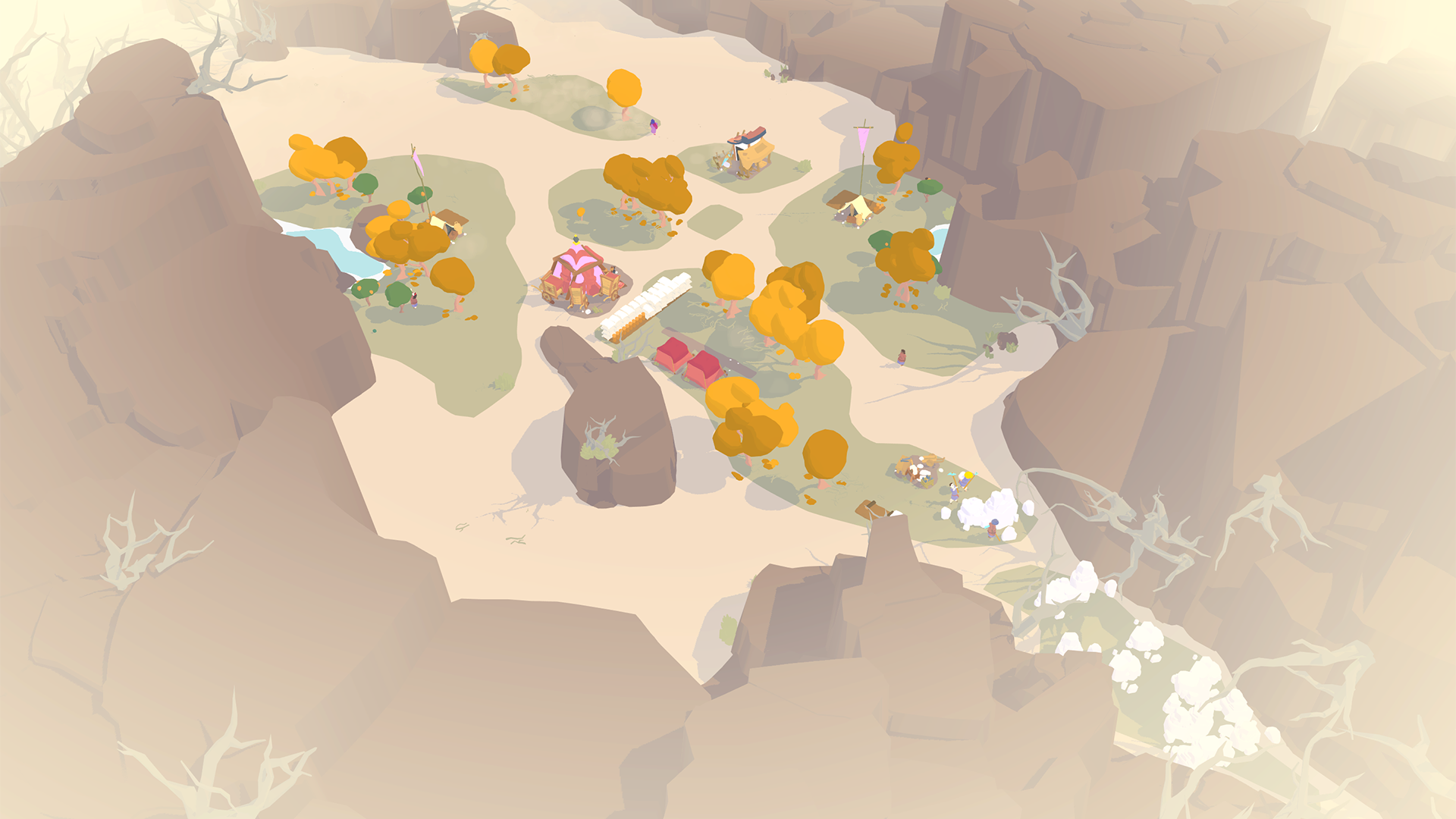
And that’s not to mention that the success or failure of your settlement seemed to constantly be balanced on a knife edge. In order to get anything done, you of course, need settlers – but in encouraging more people in, you’ll also need more food, and resources are scarce. The maps in Outlanders are small and have very limited supplies on offer, meaning I ran into issues with materials on more than one occasion.
If you don’t pay close attention to what your settlers are doing then you can quickly deforest the few trees on offer, which in turn destroys the habitat for your foragable foods and before you know it your villagers are dropping like flies from starvation. And unlike most of the game, the turnaround between budding success and overwhelming failure can happen fast. It was painful to get 50% through a level and suddenly crash and burn, meaning you had to repeat the entire level again – all at that aforementioned snail’s pace. Frankly, it had me pulling my hair out.
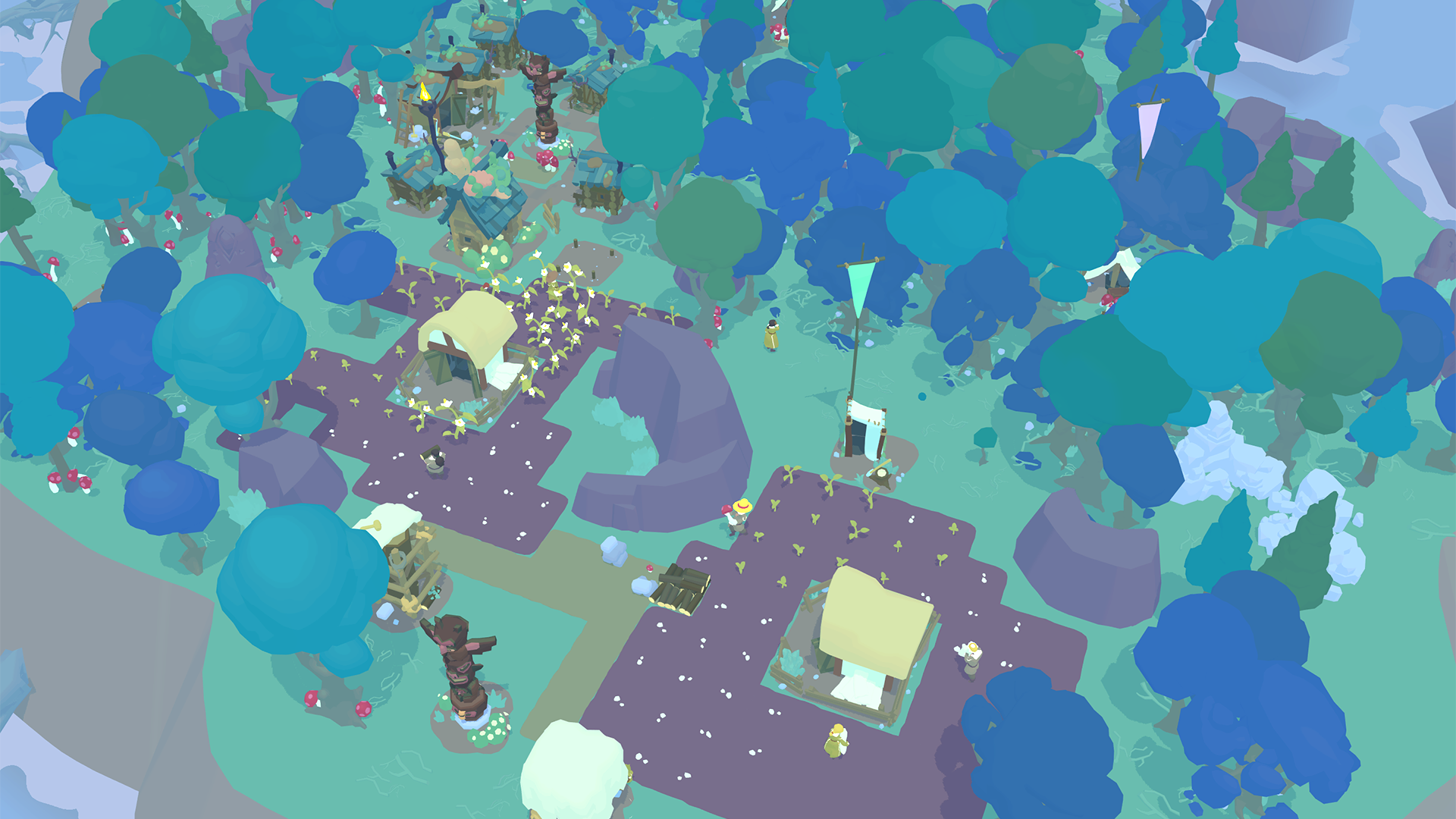
But -and it is a big “but”- once I got the hang of the priorities (namely that you cannot ever have enough people foraging for food from a series of rotating sources), I grew to really enjoy what Outlanders has to offer.
I slowly came to realise that because the scope is so small, (as in there’s maybe only 15 different buildings you can make in the whole game), Pomelo Games have had to dial back the speed to keep you from achieving your goals in just a few minutes, which would Outlanders a rather a throwaway affair. Instead, you’re asked to micromanage your settlers in the most hands-on fashion I’ve ever experienced – almost manually asking just a few folk to cut down those specific two trees, whittle them into planks, erect a new building and put them to work there, rather than having crews of people to do all of that almost on autopilot.
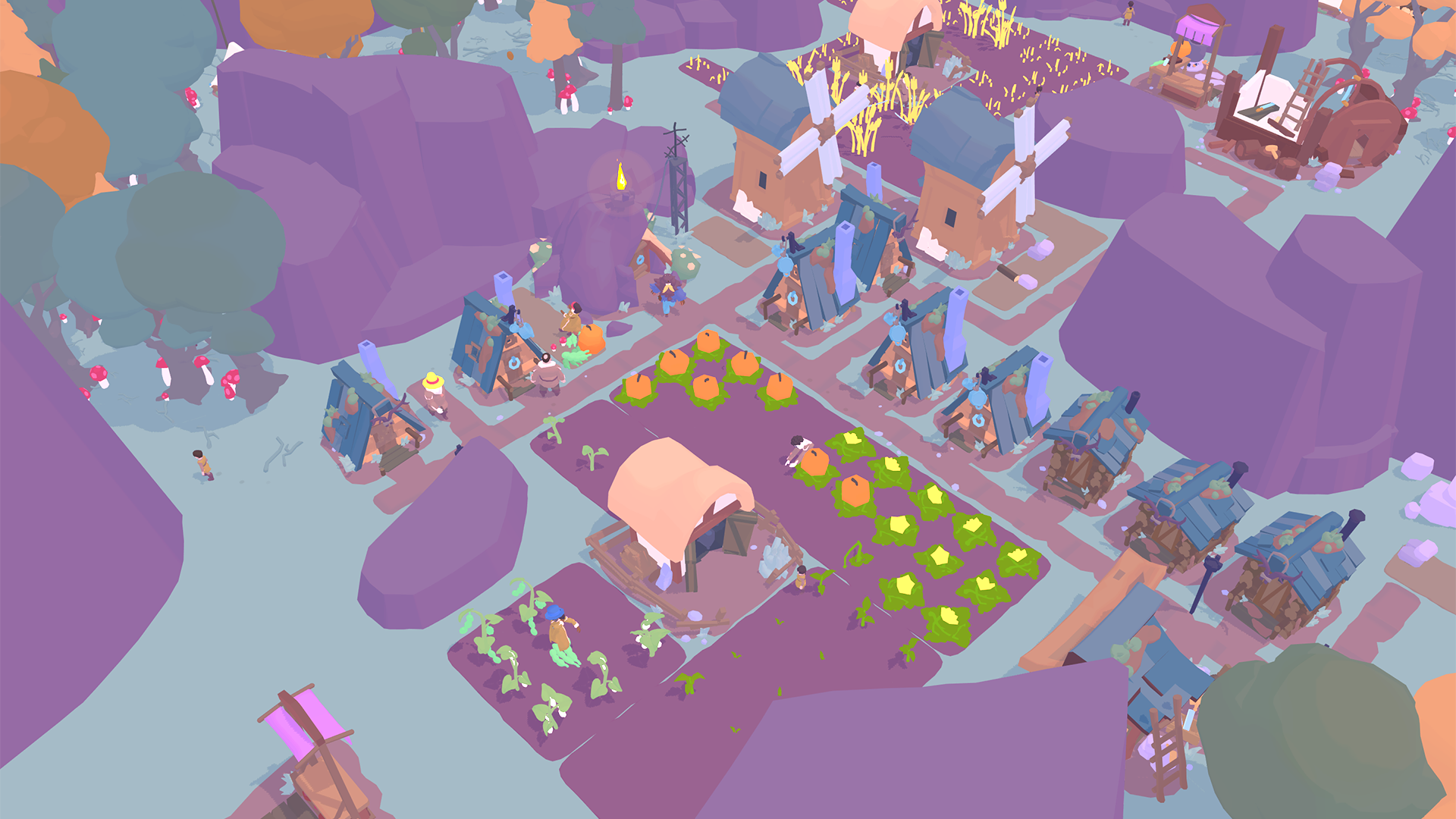
It feels incredibly rewarding to overcome the stringent limitations of the map and your objectives in order to grow a tiny functioning settlement out of just a handful of folks. The margins between winning and losing probably need a tweaking a little, lest people get fed up in trying to find the balance, but there’s a lot to be said for the ‘slowly but surely’ style of gameplay. My favourite level was built around needing to build a ‘Wicker Bread Man’ -a giant glutenous celebration effigy- whilst also keeping your population under 14 people. It really hit home the humble island lifestyle and keeping a close eye on those few folks you have around you. (*Spoiler Alert* thankfully, no-one gets baked alive inside the bready sculpture upon its completion.)
If you like what Outlanders has to offer, there’s some DLC available too; the Flood and Fire and Heir of the Roads packs each add standalone 6 level campaigns that are more story-focussed than the core game, and are pretty good value at less than a fiver apiece.





Outlanders is a small-scale city-builder that pulls you in with the jolly visuals but really gets its hooks in you with the focussed objectives and micromanagement. Things play out at a pace just north of ‘glacial’ which can be relaxing and/or infuriating, but the chill banjo soundtrack will do its utmost to calm the savage beast of your frustration and keep you chugging along. A fun entry to the genre – I loved the stripped back, low-stakes objectives and the need to keep an eye on the smallest details, but the mechanics don’t leave a lot of room for error which can be a headache when you’re learning the ropes.
Recommendation Score
In the interest of full disclosure, VGamingNews was provided with a copy of the game in order to conduct this review.

